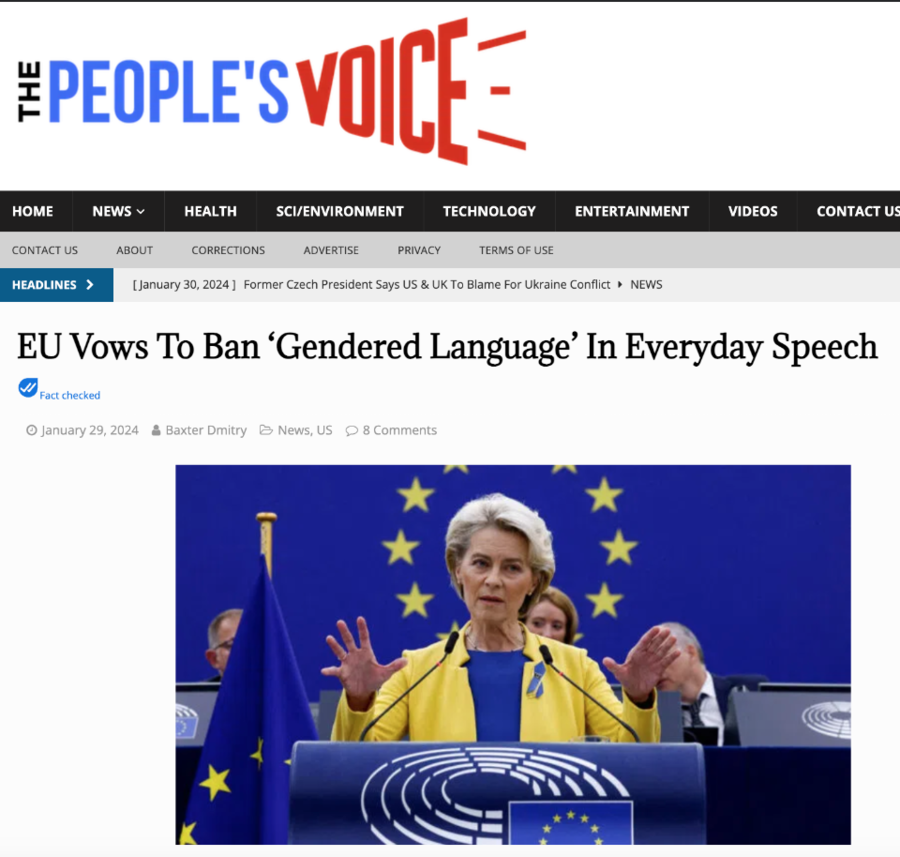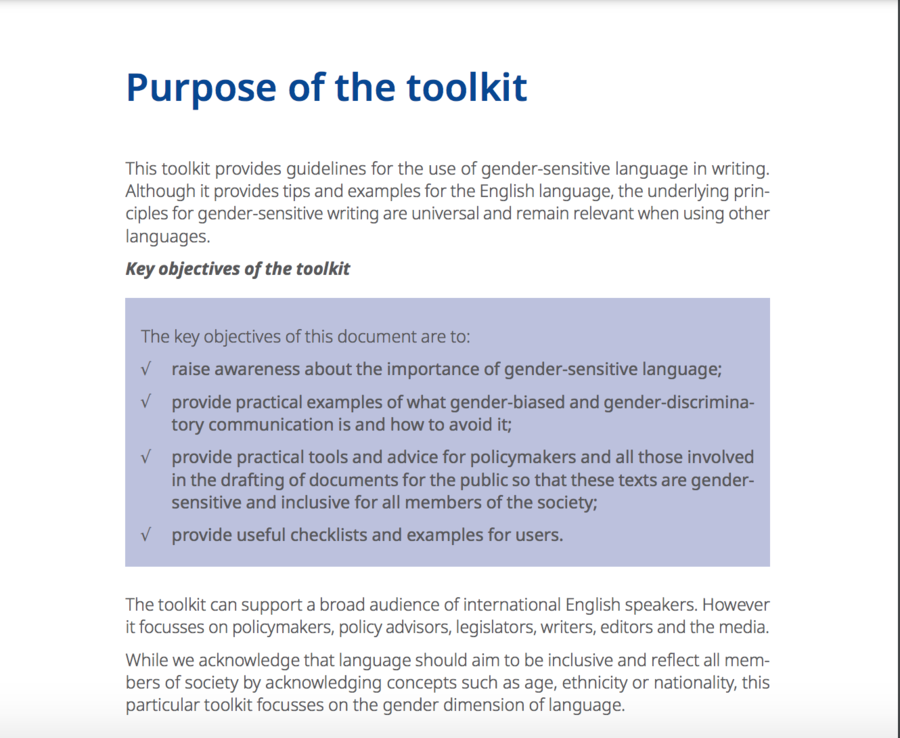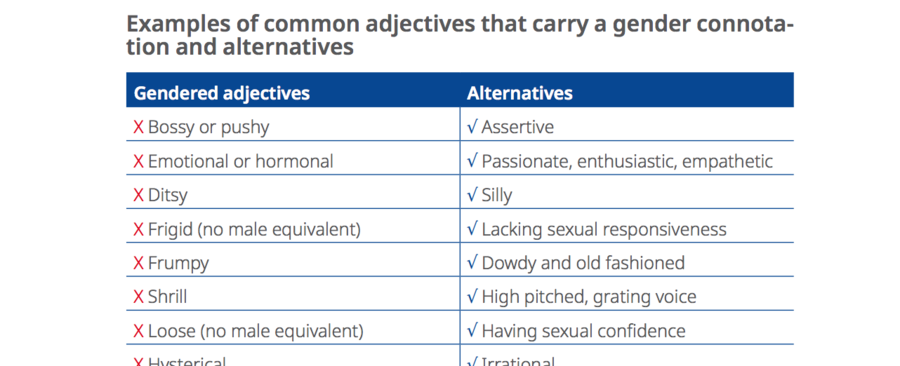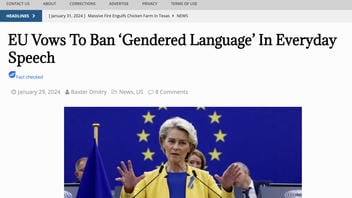
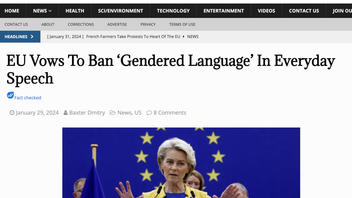
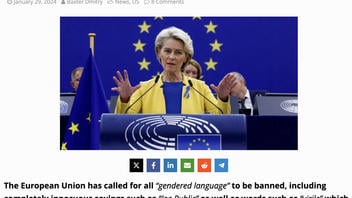
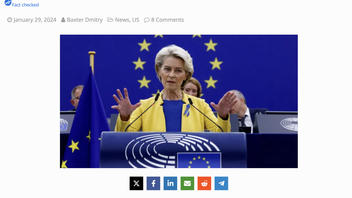
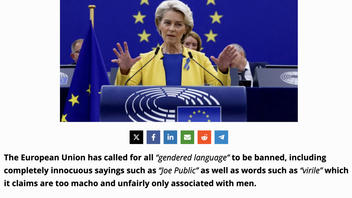
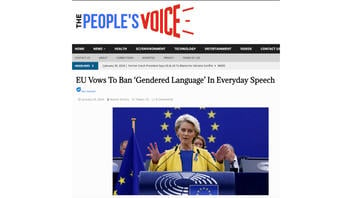
Did the European Union call for all "gendered language" to be banned in everyday speech? No, that's not true: The document on which the claim is based was a set of guidelines and suggestions published in 2019 by the European Institute for Gender Equality, which is not the governing body of the European Union and does not have the ability to pass legislation. Also, the document does not call for a ban or prohibition on any language. The Gender Equality website clearly states it is "an easy-to-use guide on how to use more gender-sensitive language" but never states the intention to "outlaw" any language.
The claim appeared in an article (archived here) published by The People's Voice on January 29, 2024, under the headline "EU Vows To Ban 'Gendered Language' In Everyday Speech." It began:
The European Union has called for all 'gendered language' to be banned, including completely innocuous sayings such as 'Joe Public' as well as words such as 'virile' which it claims are too macho and unfairly only associated with men.
This is what the article looked like at the time of writing:
(Source: The People's Voice screenshot taken on Wed Jan 31 16:12:29 2024 UTC)
The document (archived here) cited in the article was a guidance published by the European Institute for Gender Equality (EIGE) in 2019 titled, "Toolkit on Gender-sensitive Communication." It's listed as a "resource for policymakers, legislators, media and anyone else with an interest in making their communication more inclusive." The website (archived here) states the mission of the document:
This toolkit provides guidelines for the use of gender-sensitive language in writing. Gender-sensitive communication ensures that women and men - and those who do not conform to the binary gender system - are treated as persons of equal importance and dignity.
The EIGE is not a governing body that can pass laws for the European Union. The EIGE website (archived here) explains the organization's mission:
We are an independent centre and the primary source for information on gender equality in the European Union.
Nowhere within the document is it suggested that gendered language be prohibited or banned, least of all among private members of the public. Page 7 of the document describes its own purposes:
The key objectives of this document are to:
√ raise awareness about the importance of gender-sensitive language;
√ provide practical examples of what gender-biased and gender-discriminatory communication is and how to avoid it;
√ provide practical tools and advice for policymakers and all those involved in the drafting of documents for the public so that these texts are gendersensitive and inclusive for all members of the society;
√ provide useful checklists and examples for users.
(Source: European Institute for Gender Equality website screenshot taken on Wed Jan 31 19:20:33 2024 UTC)
The People's Voice article also makes the claim:
Likewise, words which are usually associated with women, such as 'pushy' and 'shrill' must be outlawed, according to the EU, which has provided a list of acceptable terms to be used as replacements in everyday conversations by compliant citizens.
There is no mention of the word "outlawed" in the document. Instead, "examples of situations where women may be subject to invisibility or omission" are shown and alternatives are suggested, not mandated, on page 56 of the document.
Page 57 of the document lists "Examples of common adjectives that carry a gender connotation and alternatives," but does not outlaw them:
(Source: European Institute for Gender Equality website screenshot taken on Wed Jan 31 19:23:13 2024 UTC)

